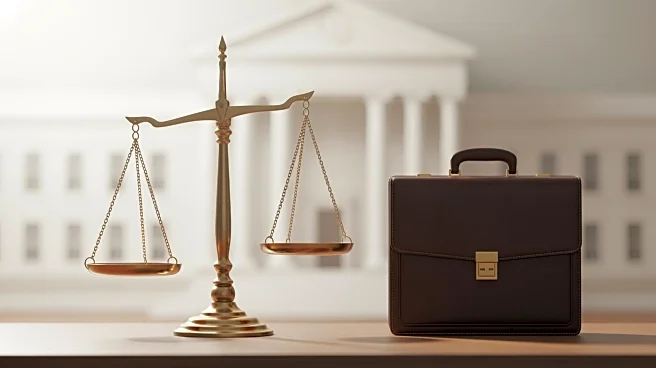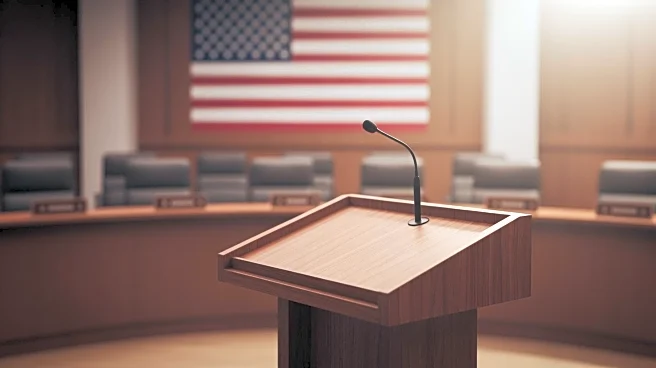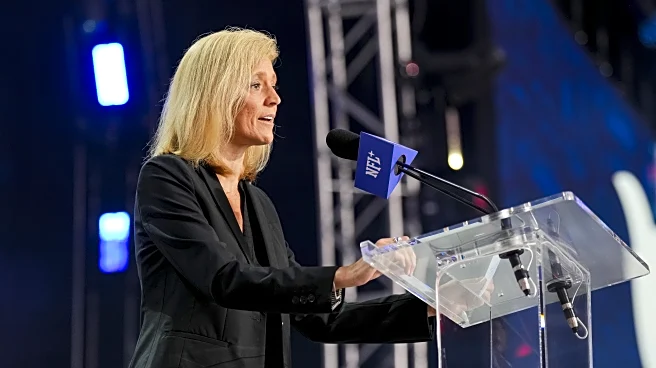What's Happening?
The Supreme Court has issued a temporary block on a lower court order that required the Trump administration to allocate $4 billion to the Supplemental Nutrition Assistance Program (SNAP) during the ongoing government shutdown. This decision, delivered
by Associate Justice Ketanji Brown Jackson, delays the enforcement of the order, which was intended to ensure continued food assistance for millions of Americans. The administration argued that fulfilling the order would necessitate diverting funds from school lunch programs, a move it described as 'starving Peter to feed Paul.' The appellate court had earlier declined to block the order, prompting the administration to seek relief from the Supreme Court. The hold is set to expire 48 hours after the 1st U.S. Circuit Court of Appeals makes a ruling on the matter.
Why It's Important?
The temporary block on the order to fund SNAP highlights the ongoing challenges faced by millions of Americans who rely on food assistance programs. The government shutdown has exacerbated food insecurity, with many states struggling to distribute benefits due to funding uncertainties. The administration's stance on potentially cutting school lunch programs to fund SNAP underscores the difficult trade-offs in managing limited resources during a shutdown. This situation has sparked bipartisan concern, with lawmakers urging for a resolution to prevent further harm to vulnerable populations, including children who depend on both SNAP and school meal programs.
What's Next?
The 1st U.S. Circuit Court of Appeals is expected to issue a ruling on whether the Trump administration must comply with the order to fund SNAP. Depending on the outcome, the Supreme Court may need to make a further decision. Meanwhile, states continue to face logistical challenges in distributing SNAP benefits, with some already experiencing delays. The broader implications of this legal battle could influence future policy decisions regarding the funding and administration of federal assistance programs during government shutdowns.















